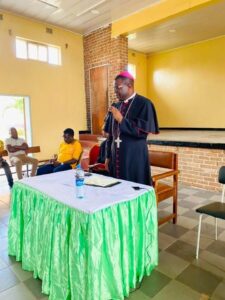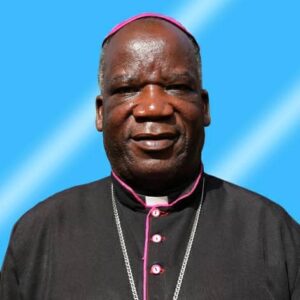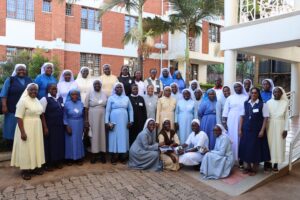UGANDA: Catholic Care for Children in Uganda Registers an Upward Trend in Capacity Building
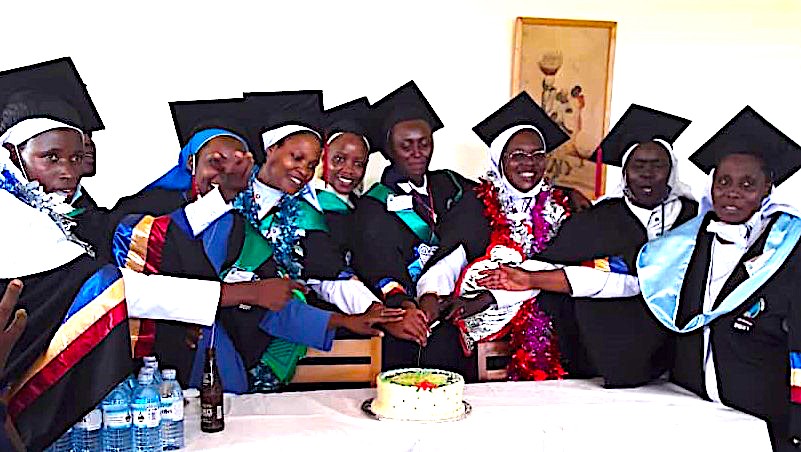
Some of the CCCU graduates jointly cut a cake as part of celebrating their achievement (Courtesy photo)
Sr. Stella Maris Kamanzi OLGC
For the last five years, Catholic Care for Children in Uganda (CCCU) program has had a steady growth in capacity building initiatives for Consecrated Persons in the field of Social Work and Social Administration, Community Based Rehabilitation, Occupational and Physiotherapy programs and supporting Child Care Institutions (CCIs) to supersede minimum standards set by the Government.
April 9, 2021, made a landmark when eleven Consecrated men and women graduated at the University of Kisubi: eight with a Bachelors and three with a Diplomas in Social Work and Administration. In the same vein, sixteen (16) have completed their studies and are due for graduation by the end of this year while 1o more are continuing with a Diploma and Certificate programs in Social Work at Lubaga Social Training Institute and other students are distributed in various Universities and Institutions of higher learning.
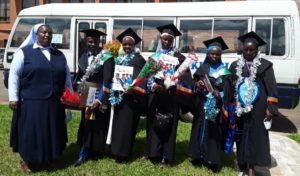
At the start of 2020, the CCCU program embarked on an extension of phase II of the CCCU program which aimed at piloting the transitioning of at least two CCIs to community-based care centers.
The extension of Phase II further aimed at institutionalizing ‘Best Practices’ that had been achieved in the previous phase that had run from January. 2018 to December 2019. Despite of the disruptions due to Covid-19, the program was adapted to the new normal in a bid to deliver the intended deliverables.
Under phase I, 62 Consecrated men and women studied Social Work and Social Administration out of which 20 have completed their studies, 14 have graduated and 20 are continuing. The seven-year phase which runs from 2016 – 2022 aims at building the capacity for Consecrated persons to provide highest quality care possible for children living outside of family care through capacity building scholarships in Social Work and Social Administration, Community Based Rehabilitation, Special Needs Education, Occupational and Physiotherapy.
Under the new scholarship admissions, one is admitted for Physiotherapy while four are admitted for Special Needs Education.
Meanwhile there is contentment that Social Work skills are already being used by 49 skilled persons out of the 68 Religious who are actively serving in CCIs and are benefiting from the capacity building workshops, hence putting their social work skills to use.
